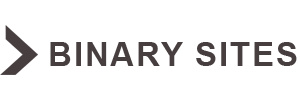Let’s talk about banking methods.
This is an important topic because each broker will be different in terms of the banking methods they accept, their deposit/withdrawal limits and the fees they charge.
Your goal should be to find a broker who accepts the banking options you want to use, without it costing you an arm or a leg.
This page is going to help you reach that goal. Keep reading for more.
Best (and Most Common) Banking Methods
Here are the best – and most common – banking options brokers accept. They’re listed from best to worst.
Credit / debit cards – This is the best option because it is fast and convenient. There are usually no fees for deposits, too. And traders outside of American can even request withdrawals to their cards.
The most common cards accepted are Visa, MasterCard, American Express (Amex), Discover, Maestro, Switch, Solo, Delta and Diners Club.
E-wallets – This is a solid option because they’re fast, easy to use and are accessible to everyone. Common e-wallet options include: Neteller, Skrill, UKash, ECO and WebMoney.
Wire transfers – These are a great way to move large quantities of money. The downside, though, is most brokers won’t let you use them unless you transfer at least $500 (although some will for a fee).
These options should be your first choice. But if they don’t work for you then you might try using:
Money transfers – Popular choices include MoneyGram and Western Union. This option isn’t too popular, but if you can find a broker who accepts it, it’s a great way to send money discreetly.
Bitcoin – This is another option that is hit or miss with brokers, but when available it can provide anonymity, minimal fees, speed and convenience.
It’s important to remember that most brokers will ask that you cash out your winnings using the same method you used to make your deposit.
With that said here are some things to know about binary options banking.
5 Things to Know About Binary Options Banking
1. You will need to prove thyself.
Either when you make your deposit or when you cash out, the broker will likely ask you to send in some documents. Things like your ID, a utility bill and some other kind of identification.
Don’t be alarmed – they just want to be sure you are who you say you are. They want to make sure you’re not committing fraud, theft and/or are money laundering.
2. There are limits.
Every broker has deposit limits. Most will have a min deposit of at least $100 and maxes can exceed thousands of dollars per day/week/month.
Another thing – wire transfers will usually have a min of $500 or $1,000. Any lower and you’ll either have to pay a fee or choose a different deposit method.
3. Be prepared to pay fees.
Other than wire transfers, most deposits should be fee-free.
Withdrawals will be hit or miss, though. Some brokers will offer 1 or 2 free cash outs every month, and then charge you for each one thereafter. Others will offer free and/or expedited cash outs as a perk one of their upgraded accounts.
Then there are brokers who will charge you regardless.
The fees will vary. I would expect to pay up to 5% for credit/debit card and e-wallet cash outs, and between $30 and $50 for wire transfers.
4. Beware of deposit bonuses.
A common complaint I see from beginners is they want to cash out, but were told they couldn’t because they accepted the bonus.
My suggestion – avoid the bonus. Let me explain why.
Deposit bonuses come with terms. You agree to these terms when you agree to accept the bonus.
The terms work something like this – you have to wager so many dollars relative to the amount you receive. For example, say you deposited $500 and got a $500 bonus. The rollover is 30x the deposit and bonus.
This means you need to wager $30,000 …BEFORE YOU CAN CASH OUT.
And since this is a form of gambling – and most traders are amateurs – the odds of you wagering $30k before you lose your $1k is slim.
The best way to avoid this problem is to not accept the bonus. Most brokers will usually give you the option when you make your deposit. You can also tell them on the phone when they call you (after you create your account).
If any broker says you have to take the bonus (and any reputable broker won’t) I suggest taking your business elsewhere.
5. Read the terms and conditions …or else.
Are they boring?
Sure.
But it’s important you read the terms and conditions before you create your account, let alone make a deposit. Other than deposit bonuses, many brokers will have terms about their demo accounts, depositing but not making real money trades, and so on.
For example – one broker has a rule that says they can charge you something like five or seven percent if you make a deposit (to get access to their demo account), but you withdraw before making a real money trade.
So no matter how boring you find reading lawyer-speak, it’s a good idea to do it if you don’t want to be blindsided with fees and/or complications when it comes time to cash out your money.
| REVIEW | MIN DEPOSIT | AVG RETURNS | VISIT BROKER |
|---|---|---|---|
 | $250 | 100% | VISIT SITE |
 | $10 | 80% | VISIT SITE |
 | $50 | 160% - 180% | VISIT SITE |
 | $250 | 95% | VISIT SITE |
 | $250 | 80% - 90% | VISIT SITE |
